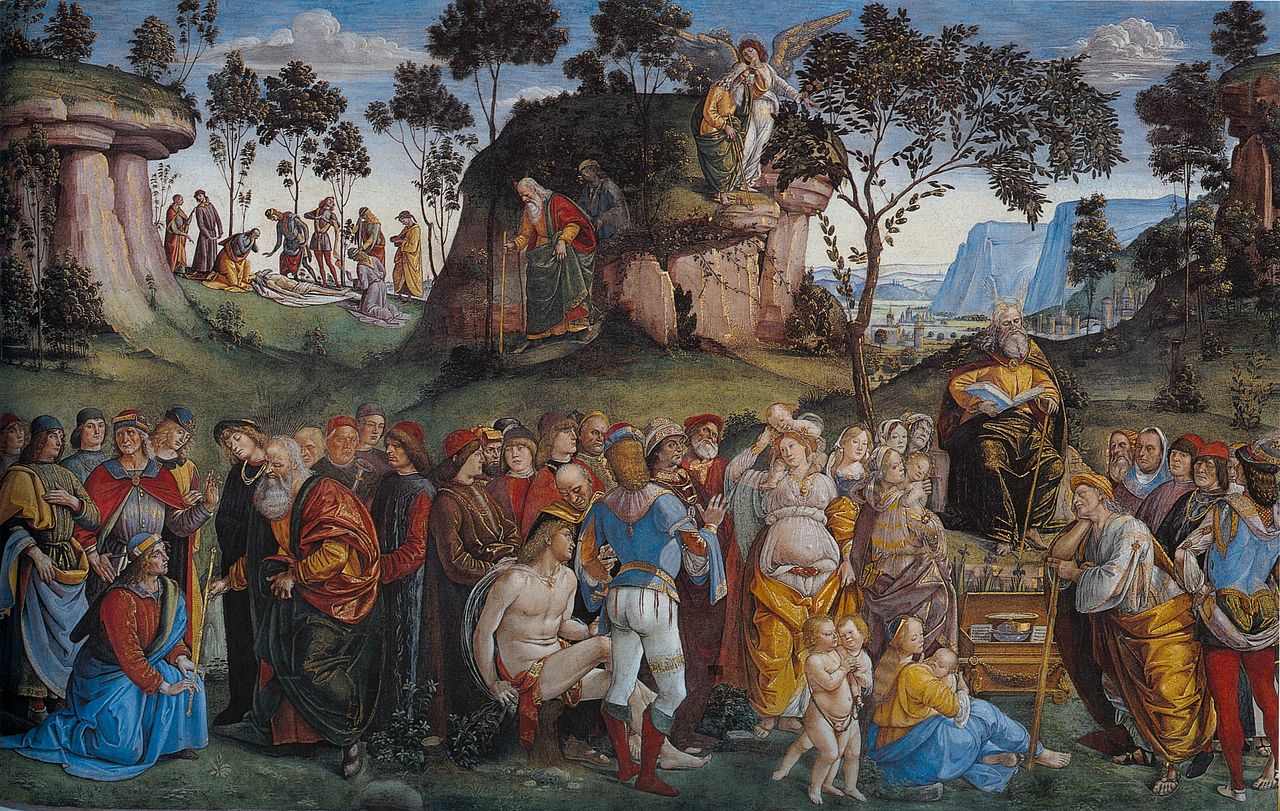אֲזַלַת בְּכִיתָא | Azalat Bekhita, a lamentation on the death of Mosheh (SYAP 41, ca. 7th c.)
Source Link: https://opensiddur.org/?p=57985
open_content_license: Creative Commons Attribution-ShareAlike (CC BY-SA) 4.0 International copyleft license date_src_start: 0640-00-00 date_src_end: 0700-00-00 languages_meta: [{"name":"English","code":"eng","standard":"ISO 639-3"},{"name":"Aramaic (Jewish Western Aramaic)","code":"jpa","standard":"ISO 639-3"}] scripts_meta: [{"name":"Latin","code":"Latn","standard":"ISO 15924"},{"name":"Hebrew (Ktav Ashuri)","code":"Hebr","standard":"ISO 15924"}] Date: 2024-09-24
Last Updated: 2025-08-14
Categories: Simḥat Torah, Shiv'ah b'Adar
Tags: 45th century A.M., 7th century C.E., acrostic, Alphabetic Acrostic, Aramaic, Mosheh Rabbenu, mourning, Nusaḥ Erets Yisrael, phonetic alphabetic acrostic translation, פיוטים piyyuṭim, קינות Ḳinōt
Excerpt: Azalat Bekhita, is probably incomplete, extending only to ḥeth in known manuscripts. It features multiple people, places, and things important in Moshe's life taking turns to eulogize him. It's been translated preserving the acrostic and monorhyme scheme. Taken from Sokoloff and Yahalom's Jewish Palestinian Aramaic Poetry from Late Antiquity (2018), it is presented here vocalized with an original translation. . . .
Content:
In the old Erets Yisrael rite, one aspect of the Simḥat Torah service was communal mourning for Moshe’s death, and multiple piyyutim in both Hebrew and Aramaic have been preserved as evidence of this custom. Considering the events of Simḥat Torah last year, perhaps it’s worth bringing that custom back. Presented here is the second of three Aramaic-language Byzantine-era lamentations for the death of Moshe (SYAP 40-42), written to be recited as part of the Simḥat Torah service. The second piyyut, Azalat Bekhita, is probably incomplete, extending only to ḥeth in known manuscripts. It features multiple people, places, and things important in Moshe’s life taking turns to eulogize him. It’s been translated preserving the acrostic and monorhyme scheme. Taken from Sokoloff and Yahalom’s Jewish Palestinian Aramaic Poetry from Late Antiquity (2018), it is presented here vocalized with an original translation.
| Source (Aramaic) |
Translation (English) |
|
אֲזַלַת בְּכִיתָא בְּכׇל־מְדִינְתָּא
בְּשַׁעֲתָא דְּאִתְפַּטַר מֹשֶׁה נְבִיָּיא
בְּכָא יָתֵיהּ נִילוּס נַהֲרָא
גַּבְרָא דְּרַבִּיתִי מִן־טַלְיוּתָא
|
All the province went out weeping,
At the hour that Moshe the prophet passed.
Bawling was the Nile River:
“The man I raised from youth!”
|
|
גָּעַן וּבָכַן כׇּל־שִׁבְטַיָּא דְּיִשְׂרָאֵל
כְּעָנָא בְּמַדְבְּרָא דְּלֵית לְהוֹן רַעֲיָא
דִּמְעָא שָׁפְכִין בֵּית יִשְׂרָאֵל וְאָמְרִין
מָאן יְהַב לַנָא גַּבְרָא כְּוָותֵיהּ דְּמֹשֶׁה
|
Groaning and crying all the tribes of Israel,
like a flock in the desert without a shepherd.
Down flowed tears, as the House of Israel said:
“Who will give us a man akin to Moshe?”
|
|
הַר טוּרָא דְּתָבוֹר וכַרְמֶל שָׁפְכִין בְּבִכְיָיא
וְסִינַי מַסְפֵּד בֵּין־תַּרְוֵיהוֹן
וַוי עֲלַי אֲמַרַת אוֹרַייתָא
רַעֲיָא טָבָא דְּאִתְפְּרִיק מִינִּי
|
High mountains — Tabor and Carmel, poured out weeping,
And Sinai eulogized between them.
“Woe is me!” said the Torah;
“A good shephard has been removed from me!”
|
|
זַע וְאִתְבְּהַל יְהוֹשֻׁעַ בִּן־נוּן
כְּיוֹנֵק דְּמִתְגְּמִיל מִדַּדֵי אִימֵּיהּ
חֲבַל עֲלַי אֲמַרַת אוֹרַייתָא
וּמֹשֶׁה יְהַב לִי חַיִּים לְעָלַם
|
Zone in on Yehoshua bin Nun, shaking and trembling,
like an infant weaned from his mother’s breasts.
“Humiliated am I,” said the Torah,
“as Moshe gave me life eternal!”
|
Contributor: Unknown
Co-authors:
-

Name: Unknown
Bio: Sometimes the best we can do in attributing a historical work is to indicate the period and place it was written, the first prayer book it may have been printed in, or the archival collection in which the manuscript was found. We invite the public to help to attribute all works to their original composers. If you know something not mentioned in the commentary offered, please leave a comment or contact us.
Website:
Profile Link: https://opensiddur.org/profile/unknown
-

Name: Isaac Gantwerk Mayer (transcription & naqdanut)
Bio: From a family of musicians, Isaac Gantwerk Mayer believes that creative art is one of the most powerful ways to get in touch with the divine. He composes music and poetry in Hebrew and English. (He also translates and authors his own original works.) Isaac runs a Jewish music transcription service, which will transcribe and set any Jewish music in any language, recorded or written. Contact his service on Facebook or via his music blog.
Website: https://igmjewishcreativeworks.com
Profile Link: https://opensiddur.org/profile/isaac-gantwerk-mayer-transcription
-

Name: Isaac Gantwerk Mayer (translation)
Bio: From a family of musicians, Isaac Gantwerk Mayer believes that creative art is one of the most powerful ways to get in touch with the divine. He composes music and poetry in Hebrew and English. (He also authors his own original works and transcribes Hebrew and Aramaic text, adding niqqud and t'amim as needed.) Isaac runs a Jewish music transcription service, which will transcribe and set any Jewish music in any language, recorded or written. Contact his service on Facebook or via his music blog.
Website: https://igmjewishcreativeworks.com
Profile Link: https://opensiddur.org/profile/isaac-gantwerk-mayer-translation
Featured Image:

Title: 1280px-Signorelli,_Luca_-_Moses’s_Testament_and_Death_-_1481-82
Caption: "Testament and Death of Moses" (1482) by Luca Signorelli



